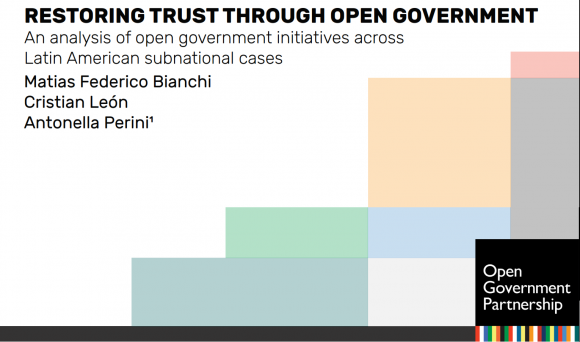
So last month I finally defended my doctoral thesis. Here’s a short post to close that chapter, looking at the process, product, and next steps.

One of the ways we expect OGP to improve governance in member countries is by telling governments (how) to be more participatory. But a close read of the participation norms and policies promoted and adopted in an OGP context suggests that even if government’s did everything they were told, it might not be such a game changer for responsiveness and accountability.

Soft power and voluntary social dynamics are what make MSI’s like OGP unique. Yet these dynamics are almost completely ignored in the burgeoning body of research on public governance MSIs. This is probably because compliance and impact seem easier to measure, but research on how OGP facilitates socialization and learning is as feasible as it is important. This post presents findings from a case...

This is the first a series of posts ahead of the OGP Summit in Ottawa, summarizing aspects of my doctoral research on OGP and civic participation. You can find some background on that research here. We spend a lot of time talking about whether or not global MSIs like the OGP are “working”. These conversations often take place against the backdrop of dissatisfaction with results and...

What is it?: Restoring Trust through Open Government: an analysis of open government initiatives across Latin American subnational cases (36 pg report presenting research findings from 9 cities, commissioned by OGP). Main Point: Online interaction is bringing municipal governments and publics closer together, building trust in government in the process. Where it’s coming from I read this as part...

This 2 week roundup has lots of evidence on monitoring to reduce bribery and SMS to increase voter information. There's comparative evidence on increasing political trust and decreasing corruption, plus excellent advances on understanding how to get evidence used in policy. Plus a review of open data measurement frameworks.

Civic tech research last week included deep dives into measuring and assessing open government in Mexico, insights on why governments choose collaboration, and field experiments that hint at the limits of scaled engagement strategies. Plus, funding, resources for mapping legal regimes, and smart thinking on how to think about civic tech impact.

Here’s a long-ranging exploration of the literature on international relations, policy diffusion, public administration, global policy assessments and multi-stakeholder initiatives, where I try to draw some conclusions about what we know and what we don't. I wrap it up by proposing six research questions that could directly inform the design of global do-goodery. There’s a bulleted summary up top.
Findings From the duh desk: A white paper from Cornell Law reviews e-government and rulemaking processes in the US, to find that an institutional “culture of risk adverseness” is much more obstructive to e-participation than is a lack of technological solutions. What difference does it make?: An article in Telecommunications Policy documents how mobiles have dramatically reshaped the...